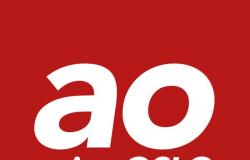This is a statement. The content of the text expresses the author’s opinion.
In 2024, the Department of Art and Media Studies (IKM) at NTNU can mark its 50th anniversary as a unique institution in the Norwegian university system. In 1974, the practical-theoretical study drama, film and theater was established, and in 1980 the department, which today is called the Department of Art and Media Studies, was formed.
Agree or disagree?
Send us your opinion on
Since 1997 IKM has had study programs in art history, media studies, film studies, film and video production and drama and theater under the same roof. This collection of various art study programs is in itself unusual in Norwegian higher education, but what really makes this professional environment at Dragvoll distinctive is the combination of practical and theoretical approaches, particularly to the medium of film and drama and theatre. With us, students studying film production e.g. introduction to making films by subject teachers who themselves have high practical competence, and introduction to analyzing films by film scholars. In drama and theatre, students gain practical competence in theater production, and learn to reflect on their own work in the light of theory about the theatre’s tools and roles in society, from some of Norway’s leading performers in performing arts production and artistic research. The practical-theoretical profile is unique in the Norwegian context.
As professional staff at IKM we feel that the practical-theoretical profile makes our subjects visible nationally and internationally, and it recruits students to our study programs and new employees to our professional environment. For several decades, this profile has been important for both research and teaching at the institute, and provided society with candidates who have cross-skills that are in demand both in research, school and the local and national art and cultural life.
It is therefore with shock, sadness and anger that the “anniversary gift” we have received from our own faculty – the Faculty of Humanities (HF) – is a proposal to divide the department into three and distribute the pieces around the faculty’s other departments. The background is a so-called reorganization project at the faculty which aims to have fewer departments at HF, and in that way maybe, possibly save a bit of money. The proposal for “reorganisation” was presented in a report last week. The report calls for a downscaling of the number of departments, where our unique department is therefore proposed to be broken up and erased: History of art is merged with one of HF’s two (!) history departments; media studies and film studies are given to the Department of Interdisciplinary Cultural Studies; while drama and theater and film and video production are proposed to be added to the Department of Music.
The working group behind the report points to the inappropriateness of having the study program distributed among different institutes, but nevertheless proposes to distribute the subject groups that teach the tightly integrated study program in film and video production to two disparate institutes. Several other study programs offered across IKM’s subjects will suffer the same fate.
As professional staff at IKM we are extremely concerned about the consequences such a division of a well-functioning institute could have for the study offer, for the students, for the professional environment and for future recruitment of students and colleagues. The proposal we have been presented to has a very short consultation period and is based on what we perceive to be a very weak foundation and a lack of insight into the affected fields and study programmes. The rationale given in the report is a highly uncertain and undocumented financial gain. Professional and working environment consequences are not taken into account and risk assessments are completely absent.
The working group’s report is short, flawed and without professional grounding in the professional environments that are hardest hit. The report instead refers to a few hand-picked quotes from the institutes’ so-called self-evaluations to argue for academic synergy at the proposed “new” institutes, while they have completely disregarded the academic synergy that lies in the community that exists within the subjects at the current institute and which we were not asked to account for in the aforementioned self-evaluation. All subject groups at the institute have now dealt with the proposal and all are categorically negative about splitting up the institute. Our subjects are different, but are all rooted in visual and aesthetic study objects and theories, which create a unique professional community. This is a community that gives us both identity and visibility, and a large number of graduating students carry this identity with them, be it on TV sets, in newspaper editorials, on theater stages and in art and culture institutions in the country and abroad.
If the dean’s office at the faculty forces a reorganisation which is as weakly researched as this, we fear that you will lose considerably more in the long term than you win on cards. We consider this a high-risk project where the possible gain is small and the risks many and large. Reorganization processes that are not anchored professionally or with the employees, as the Norwegian Occupational Safety and Health Authority places emphasis on, can have major negative consequences for both businesses and employees. We experience the dean’s process as domineering and divided behaviour, which will cause irreparable damage to a good professional and working environment. The final decision on IKM’s fate now rests at the level above, with HF’s faculty board, and we ask the board to make an academically based and future-oriented choice.
If not, instead of marking and celebrating a unique national professional environment’s 50th anniversary, we must start planning funerals.
Signed by
Associate professor in film studies Christer Bakke Andresen
University lecturer in media studies Gunn Ragnhild Bekken
Associate professor in drama and theater Ine Therese Berg
Associate professor in film and video production Igor Devold
Professor of film studies Anne Gjelsvik
Associate professor in theater Cecilie Haagensen
Associate professor in art history Ulla Angkjær Jørgensen
Professor of theater Tore Vagn Lid
Professor of film studies Anne Marit Myrstad
Associate Professor of Theater Elena Pérez
Associate professor in drama and theater Lene Helland Rønningen
Associate professor in film and video production Asbjørn Tiller
University lecturer in film and video production Sven Østgaard
– on behalf of several
Tags: humanities faculty gambles unique academic environment
-





